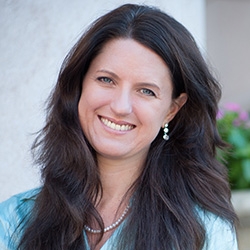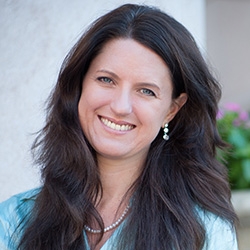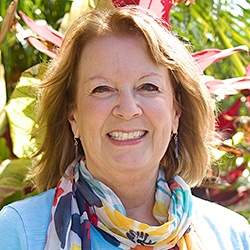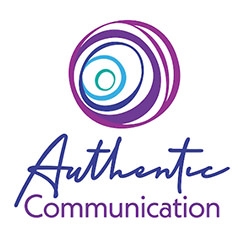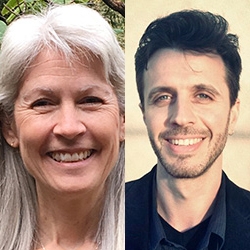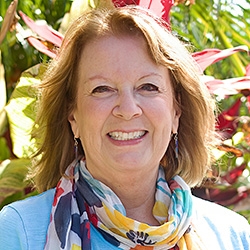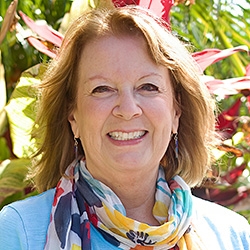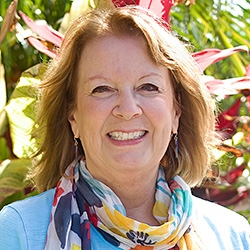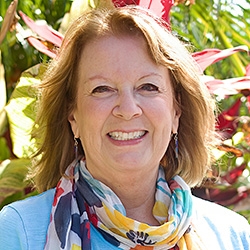

Search Results: awareness
-
Responding to your own reactivity is an inside job. Robert reveals how your reactions are often a secondary reaction to a triggering stimulus, and that accepting responsibility for your reactions can lead to less blame and more inner peace.
-
How many times do we fall into the same hole, hit the same wall, get entangled into the same patterns? There seem to be hidden forces within us that keep unconsciously leading us, again and again, into the same melody of our lives. In this session, we will try to see our life-journey as a whole and rehabilitate our capacity to be in this existence of ours more directly and fully.
-
Awareness of how we're holding our own and others' needs is important to our development. In learning to value needs, we often go through three stages: passive, aggressive/obnoxious, and assertive/mutual. As we learn and grow, we may relate to the following differently: Whose feelings and needs are important, who is responsible for what, how our choices impact others, and consideration for ourselves and others.
-
Yvette Erasmus suggests that making peace with our feelings reduces suffering. Sometimes we want to hurry through our feelings and just feel better.
-
Many of us have been raised within a right/ wrong culture. From very young ages, we are asked, "What is wrong?" Yvette Erasmus shares a different view where emotions can be seen as expansion and contraction, where they can help us identify our needs.
-
Join Mary Mackenzie, Certified NVC trainer, as she offers ways to incorporate NVC empathy guesses, feelings and needs into everyday conversations. This approach is geared towards adding deeper connection to the natural flow of conversations. The technique has become known as Street Giraffe.
-
Being heard is a core human need. But what if you don't like what the other person is saying: how do you hold onto your awareness of their humanity? Find out in this demonstration from Kathy Simon's course, Connect Across Differences.
-
As human beings, our inherent goodness makes most of us believe in equality and yet sometimes our conviction in this same 'goodness' may make us blind to the reality of our own behavior. We are so convinced about the innocence of our intention that we seize to look at the impact of our behavior and thus our unconscious biases often go unexamined and unchallenged. Diversity, equity and inclusion work will only be of lip-service until we are willing to look at our own unconscious biases. Listen as Anisha Pandya encourages you to look at the possibility of how our self-awareness is so limited and one of the ways of expanding that awareness is by moving beyond our intention, looking at the impact of our behavior and remaining open to feedback.
-
Exploring how to keep NVC natural and authentic without sounding mechanical or formal.
-
CNVC Certified Trainer Stephanie Bachmann Mattei leads you through an 8 minute meditation designed to develop a more integrated body and feelings/needs awareness.
-
In this book excerpt, Kathleen and Jared offer a path to reach deeper clarity, distinguishing between response and reaction.
-
Exploring how stories and unmet needs each influence the cause of our feelings in NVC.
-
2020 has added three major global crises to our long and painful list of ongoing challenges:
- Public health crisis emerging from the Coronavirus infecting humans;
- Governance crisis manifesting especially in global protests against police brutality and governments more generally; and
- Economic crisis unfolding from responses to the pandemic.
And as a result, many of us who share NVC with others have been feeling a growing unease about our roles. I have heard from quite a few who want to go beyond using NVC primarily as a personal growth tool within the market economy, and often don't know how to do so. This course is designed to respond to this need by supporting anyone who shares NVC with others – regardless of experience or certification – in opening to the way systemic perspectives deepen and transform how we bring NVC to people, communities, and organizations.
-
This anecdote illustrates how a young man had the social awareness to consider how male conditioning may bring up competitiveness in his interactions with another man. The young man offered transparency and checked for consent in a way that shows an embodiment of power-with, togetherness, consideration, care, collaboration... and all without displaying any formal NVC training, and without looking to impress.
-
Listen as Liv shares her experience of mediating conflict between two groups: using NVC to ascertain the needs of both sides, raise awareness, and diminish polarization.
-
Trainer tip: Whenever we judge someone else in any way, we create a barrier and distance between us and the other person. Instead, consider shifting from judging other people to awareness of how their behavior affects your feelings and needs. This can make a profound difference in your ability to live peacefully. Read on for more.
-
Inbal Kashtan reflects on poverty and how empathy can help build a peaceful, inclusive world.
-
Trainer Tip: Be aware of opportunities to be honest holding the intention to connect with people. If you do this with the elements of brevity, directness, and respect, you can increase your chances of being heard. If they don't like your honesty, consider switching to empathizing with them by listening to their feelings and needs.
-
Trainer Tip: Be aware of opportunities today to choose empathizing over arguing with someone who is angry, and notice how it affects your ability to resolve the situation. Read on for more.
-
Trainer tip: Be aware of your inner jackal chatter today and make a commitment to listen for the underlying needs they are trying to tell you about.

Quick Links
Subscription Preferences
Stay In Touch!
Looking for ways to keep up with NVC Academy news, get special offers, free resources, or words of inspiration? Here are five ways to stay engaged:




